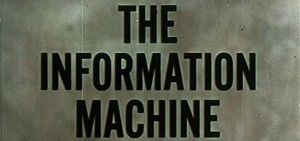 Jaron Lanier, author of You Are Not a Gadget: A Manifesto, has written a penetrating essay on the Information Age, using WikiLeaks to illustrate how romantic idealism can go wrong.
Jaron Lanier, author of You Are Not a Gadget: A Manifesto, has written a penetrating essay on the Information Age, using WikiLeaks to illustrate how romantic idealism can go wrong.
It’s a long article, published in The Atlantic. Here are some of the best parts. I hope these excerpts either save you some time or prompt you to read the whole thing. (emphasis added)
A free flow of digital information enables two diametrically opposed patterns: low-commitment anarchy on the one hand and absolute secrecy married to total ambition on the other. …
[P]eople are unable to resist becoming organized according to the digital architectures that connect us. The only way out is to change the architecture. …
The Internet as it is, which supports the abilities of Anonymous and Wikileaks, is an outgrowth of a particular design history which was influenced in equal degrees by 1960s romanticism and cold war paranoia. …
The Internet can and must be redesigned to reflect a more moderate and realistically human-centered philosophy. …
The existing Internet design is centered on creating the illusion of no-cost effort. But there is no such thing. It’s an illusion born of the idylls of youth, and leads to a distorted perception of the nature of responsibility. …
Openness in itself, as the prime driver of events, doesn’t lead to achievement or creativity. …
A sufficiently copious flood of data creates an illusion of omniscience, and that illusion can make you stupid. …
Wikileaks and similar efforts could do for politics approximately what access to a lot of data did for finance in the run up to the recession. …
How can information be both dangerous and inconsequential? Assange sees information as an abstract free-standing thing. Differences in perspective and circumstance mean nothing. This is how nerd supremacists think. …
The Wikileaks design, by invoking Wikipedia, creates the impression that some universally negotiated, balanced unveiling of human affairs is being approximated; that what was formerly hidden is being fairly unhidden. But that is not true. …
Vigilantism has always eroded trust and civility, but what’s new online is the sterile imprimatur of a digital ideology that claims to offer automatic betterment. …
“What has it done to us?” The hacker idea has gotten meaner, less sensitive, more combative, and more reactive. This is what I mean by the problem of nerd supremacy. …
The hacker as glamorous revolutionary was a guiding image as the Internet was first coming together and being polished for widespread use a couple of decades ago, and we are paying now for our silly romanticism back then. …
Even we people need structure in our affairs. Imagine openness extrapolated to an extreme. What if we come to be able to read each other’s thoughts? Then there would be no thoughts. Your head has to be different from mine if you are to be a person with something to say to me. You need an interior space that is different from mine in order to have a different, exotic model of the world, so that our two models can meet, and have a conversation.
Privacy is not about anachronistic prohibitions on information flow, but about personhood. I was one of those young hackers who didn’t get this point for a long time. I used to think that an open world would favor the honest and the true, and disfavor the schemers and the scammers. In moderation this idea has some value, but if privacy were to be vanquished, people would initially become dull, then incompetent, and then cease to exist. Hidden in the idea of radical openness is an allegiance to machines instead of people. …
If we want to understand all the sides of an argument, we have to do more than copy files. It’s not as though we are supporting reporters out there on the ground to do independent investigative journalism. Random leaking is no substitute for focused digging. The “everything must be free and open” ideal has nearly bankrupted the overseas news bureaus. …
Yet the controversies around radical openness are usually framed around questioning the legitimacy of keeping regulated institutional secrets. Military, commercial, and diplomatic spheres sanction more secret keeping than we are used to in civilian life.
If the distinctions between these spheres fail, then what we will lose is civilian life, since the others are ultimately indispensible. Then we’d turn into a closed society. In closed societies, like North Korea, everyday life is militarized. …
Anarchy and dictatorship are entwined in eternal resonance. One never exists for long without turning to the other, and then back again. The only way out is structure, also known as democracy.
We sanction secretive spheres in order to have our civilian sphere. We furthermore structure democracy so that the secretive spheres are contained and accountable to the civilian sphere, though that’s not easy.
There is certainly an ever-present danger of betrayal. Too much power can accrue to those we have sanctioned to hold confidences, and thus we find that keeping a democracy alive is hard, imperfect, and infuriating work.
The flip side of responsibly held secrets, however, is trust. A perfectly open world, without secrets, would be a world without the need for trust, and therefore a world without trust. What a sad sterile place that would be: A perfect world for machines.
Related posts:
The end of privacy
Is the Internet bad for your health?
Resources:
Image: The Atlantic
Jaron Lanier, The Hazards of Nerd Supremacy: The Case of WikiLeaks, The Atlantic, December 20, 2010
Jaron Lanier, You Are Not a Gadget: A Manifesto


Sorry, comments are closed for this post.